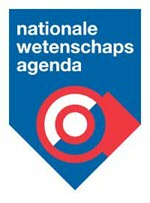Research overview
Europe is experiencing a substantial influx of first time migrants. In 2015, 2.6 million first residence permits were granted to third country nationals. In 2016, 1.2 million first time asylum seekers were registered, many of whom have been granted asylum. The call to speedily integrate these migrants in the labor market is omnipresent; for social and moral reasons, and to counterbalance host societies’ costs for reception and integration, estimated to range between 17 and 22 billion Euros in 2016 in the EU. However, migrants, and especially refugees with a residence permit (called ‘vergunninghouders’ in Dutch), experience barriers in entering the labor market and in their career trajectories (Fang et al., 2009).
A recent report by the Social Economic Council of the Netherlands (SER) shows that of the refugees who received a residence permit in 2014, only 11% found work 2,5 years later (for this report and a selection of relevant reports, articles, and output by our team). Several factors may contribute to this low employment rate. First, migrant group characteristics may influence migrants’ chances in the labor market (Blommaert et al., 2014), such as negative outcomes of recruitment procedures due to Arabic-sounding names. Second, on the side of organizations, diversity management approaches to migrant workers differ (Zanfrini & Monaci, 2017) or sometimes lack, which may influence inclusion levels of first time migrants in the workplace and their retention chances.
Aims: bridging the social science-society gap
The interdisciplinary LMIR research team at the University of Groningen aims to
- study organizations’ existing inclusiveness policies and practices in relation to perceptions of cultural distance and its combined effect on the selection and retention of refugees in their workforce.
- develop, test, and evaluate a training for employers/managers to reduce the cultural distance between organizations and refugees with a residence permit (vergunninghouders)
Approach: interdisciplinary and evidence-based
We assume that the successful selection and retention of first time migrants is dependent on both migrant characteristics and organization factors. We coin this the migrant-organization fit, referring to the possibility that organisations may perceive migrant workers to not fit well within their organisation and thus are less inclined to hire them.
Improving the migrant-organisation fit may thus contribute to the integration of migrant workers in the Dutch labor market. In our research we therefore study the employment process of refugees with residence permits from both the side of migrant and of the employer. We do this by means of combining social and cultural psychological and organization sociological approaches to labor market integration processes. From a social and cultural psychological perspective, the perceived cultural distance (i.e., norms and values) between migrants and the host society (e.g., Blommaert et al., 2014; Zhang et al., 2013) may contribute to the perception that the migrant-organisation fit is low. From an organization sociological perspective, general HRM practices and diversity management approaches in organisations may matter (Dietz et al., 2015).
Improving perceived cultural fit as well as an inclusive diversity management is a promising approach to improve the selection and retention of refugees with a residence permit in the Dutch labor market. Importantly, whereas most interventions have focused on training migrants to better fit within the organisation, little is known about interventions tailored to organisations, even though organisations express interest in hiring migrant workers but anticipate difficulties.
Interdisciplinary Research Team
Our interdisciplinary research Team (social psychology, cultural psychology, organizational sociology) employs an evidence-based approach to develop relevant insights and tools for involved stakeholders to further the integration first-generation migrants in the workforce (for our specific project goals: Projects).

Our network
Our network consists of several actors in the field of labor market integration in the Netherlands, such as the municipality Groningen, Groningen Verwelkomt, the Ministry of Social Affairs, Kennisplatform Integratie & Samenleving, Windesheim (specifically through the Leernetwork headed by dr. Sjiera de Vries), and UAF. Additionally, we actively participate in the NWA funded research program JOIN: Jongeren in een veerkrachtige samenleving. Naar nieuwe arrangementen voor inclusiviteit en participatie.
We are open to discuss possible collaborations, for example with companies who (are planning to) hire first generation migrant workers or organizations working in this field. Please contact the labor market integration team members.
| Last modified: | 20 June 2024 08.10 a.m. |


